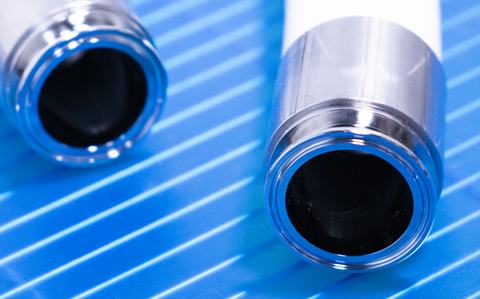Innovations in Biopharmaceutical Hose Technology: Advancements That Enhance Manufacturing Efficiency
In recent years, the biopharmaceutical industry has witnessed remarkable advancements in various aspects of manufacturing, including the technology used in biopharmaceutical hoses. These hoses are critical in ensuring the safe and efficient transfer of sensitive ingredients throughout production. With the increasing demand for quality medicines and the emphasis on cost-effective production, innovative developments in biopharmaceutical hose technology have emerged to meet the industry's ever-evolving needs. This post explores some of the latest innovations in biopharmaceutical hose technology that have revolutionized the manufacturing process, resulting in improved materials, designs, and manufacturing processes, thus optimizing production and reducing downtime.Improved Materials for Enhanced Product Safety
One of the most significant advancements in biopharmaceutical hose technology is using superior materials that ensure product safety and integrity. Traditional hose materials, such as rubber or PVC, are susceptible to leaching potentially harmful substances into pharmaceutical products, leading to contamination concerns. However, introducing advanced materials, such as thermoplastic elastomers (TPEs) and fluoropolymers, has addressed these issues.
TPEs provide excellent chemical resistance and flexibility, making them ideal for repeated sterilization applications. On the other hand, fluoropolymers offer unparalleled chemical inertness, preventing the risk of leaching and ensuring the purity of the pharmaceutical product. These innovative materials not only enhance product safety but also improve the longevity and performance of biopharmaceutical hoses.
Optimized Designs for Efficient Process Control
Another crucial area of innovation in biopharmaceutical hose technology is optimizing hose designs to achieve better process control. Manufacturers now offer hoses with reduced wall thickness and improved smoothness, contributing to lower pressure drops during fluid transfer. This optimization results in reduced energy consumption and more precise control over the fluid flow, ultimately enhancing manufacturing efficiency.
Furthermore, the development of reinforced hoses with braided stainless-steel wire or high-strength fibers has significantly increased hose durability and resistance to external stressors. These hoses can withstand the rigors of modern biopharmaceutical manufacturing processes, such as high pressures, repetitive bending, and exposure to harsh chemicals. As a result, the risk of hose failure is minimized, leading to reduced downtime and increased productivity.
Single-Use Biopharmaceutical Hoses for Enhanced Sterility
Adopting single-use biopharmaceutical hoses has become a game-changer in enhancing manufacturing efficiency while maintaining sterility. Traditional reusable hoses often require extensive cleaning and validation processes between batches, leading to significant downtime and higher costs. However, single-use hoses eliminate the need for cleaning, as they are disposed of after each use.
These single-use hoses are typically pre-sterilized, ensuring that the risk of cross-contamination is minimized. Manufacturers can streamline their processes, reduce downtime, and allocate resources more efficiently by using disposable hoses. Moreover, single-use hoses are more environmentally friendly, contributing to sustainability efforts in the biopharmaceutical industry.
Intelligent Monitoring and Predictive Maintenance
Integrating innovative technology into biopharmaceutical hoses has paved the way for real-time monitoring and predictive maintenance. Sensors within the hoses can continuously monitor vital parameters such as pressure, temperature, and flow rate. This data is then transmitted to a centralized system, allowing operators to track the performance of the hoses and detect any abnormalities or deviations in real time.
Predictive maintenance systems use this data to anticipate potential failures and alert maintenance teams in advance. By proactively addressing maintenance needs, manufacturers can prevent unexpected breakdowns, reduce downtime, and ensure a smooth manufacturing process. Implementing intelligent monitoring technology has revolutionized how manufacturers approach hose maintenance, resulting in increased efficiency and lower operational costs.
Innovations in biopharmaceutical hose technology have brought about significant advancements that enhance manufacturing efficiency in the biopharmaceutical industry. Improved materials ensure product safety, while optimized designs offer better process control and durability. The adoption of single-use hoses has revolutionized the concept of sterility maintenance, while innovative monitoring systems enable predictive maintenance, reducing downtime and operational costs.
As the biopharmaceutical industry evolves, manufacturers can leverage these innovative developments to optimize production processes, meet stringent standards, and deliver high-quality products to patients worldwide. With a focus on enhancing efficiency and ensuring product integrity, these advancements in biopharmaceutical hose technology pave the way for a promising future in biopharmaceutical manufacturing.
Explore Liquidyne
Use left/right arrows to navigate the slideshow or swipe left/right if using a mobile device










